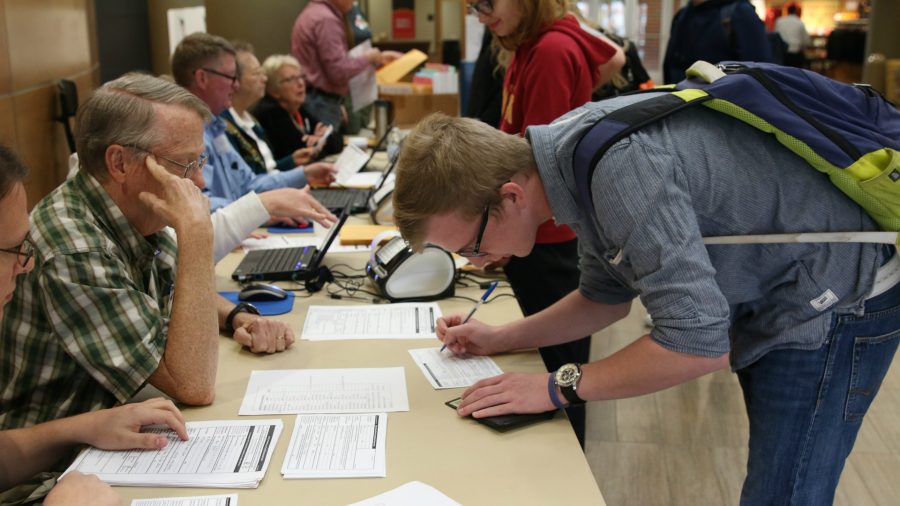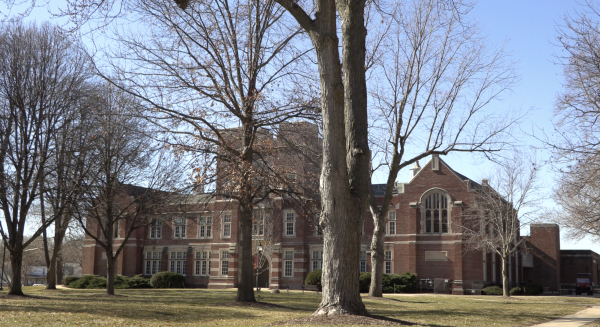Potential voter ID law in Iowa could affect college students
January 17, 2017
INDIANOLA, Iowa — A new proposal made by Iowa Secretary of State Paul Pate, a Republican, could require Iowa voters to bring identification to the voting booth for future elections.
The proposal is set to be considered in the 2017 legislative session, and Pate has hopes to put an end to voter fraud, though he has stated there is little evidence of such criminal activity. However, questions have been raised whether this could affect voter turnout.
The plan would require all voters to bring a certified ID, which includes a driver’s license, a military ID or a passport. A college ID would not count as valid identification.
If a voter does not have the proper identification, they will be issued a voter card to use at the election polls.
“I want to make it easy to vote but hard to cheat,” Pate told The Des Moines Register. “This bill streamlines the system to make checking in easier and quicker. It will reduce waiting times at the polls, ensure every eligible Iowan is able to cast a ballot and ensures their ballot will count.”
Although it was created to make voting easier, it could still cause issues amongst college student voters.
Seth Andersen, director of the Culver Public Policy Center, said he was concerned for the future of independent out-of-state students, who are the most impacted group.
“Independents already have a difficult enough time participating in the process in Iowa because we have closed primaries, and caucuses are a closed system as well,” Andersen said.
The law would also change the voting process for all student voters.
“This is an important issue for college students, whether they’re Democrat or Republican or independent, whether they’re in state or out of state, to really educate themselves on and express concerns,” Andersen said.
“If they see a proposal and think that this is going to make it difficult for them to vote, this is a really good issue for college students to be aware of,” he added.
Senior Britney Samuelson, a Student Government Association senator and Culver fellow, said she was confused and worried when she found out about the proposal.
“Particularly, I’m worried about the barriers for same-day registration, so for people our age who want to go vote on voting day but aren’t registered can just go do that,” Samuelson said. “I’m worried an election card might impede them on that process.
“I think that the people at Simpson do a lot of really good things with voter registration drives, and I would hate to see another barrier in the way of getting students out there to vote.”
A press release has been published about the voter ID proposal, but no text of the document itself has been released.
“We are waiting to see the actual text of the proposed bill,” Andersen said.
The SGA has decided not to take a stance on the voter ID proposal.
Andersen met with Samuelson and other concerned Simpson student leaders last Friday about the proposed voter ID law.
The students decided to send a letter to the secretary of state.
“We composed a letter to Secretary of State Paul Pate, and at first, we thought about taking a stance, but after doing some research, we decided that we’re really not sure what he’s proposing so we asked some clarifying questions first,” Samuelson said. “Once we get that response, we’re hoping to get that response back to the SGA or at least to the advocacy group that I’m on and decide where to go from here.”
The students are hoping to hear a response from the secretary of state next week.
Whether students are for or against the new proposal, Samuelson encourages other students to contact their district legislators.
“I just think advocacy and legislation is so important for our generation to do,” Samuelson said. “To communicate your needs and your wants to your legislators at the state Capitol is so important.”
The 2017 legislative session began Jan. 9 and will adjourn in late April.
















